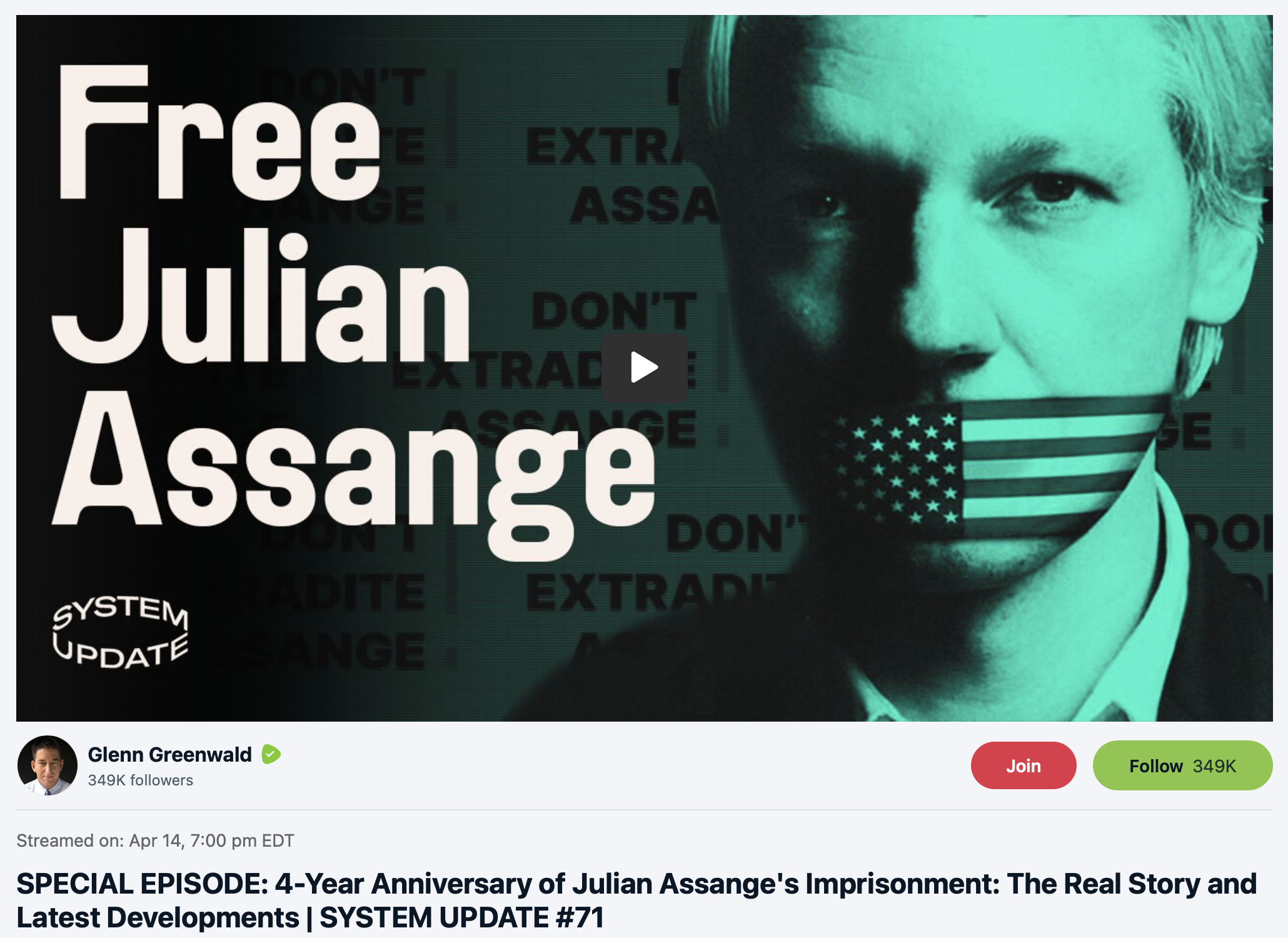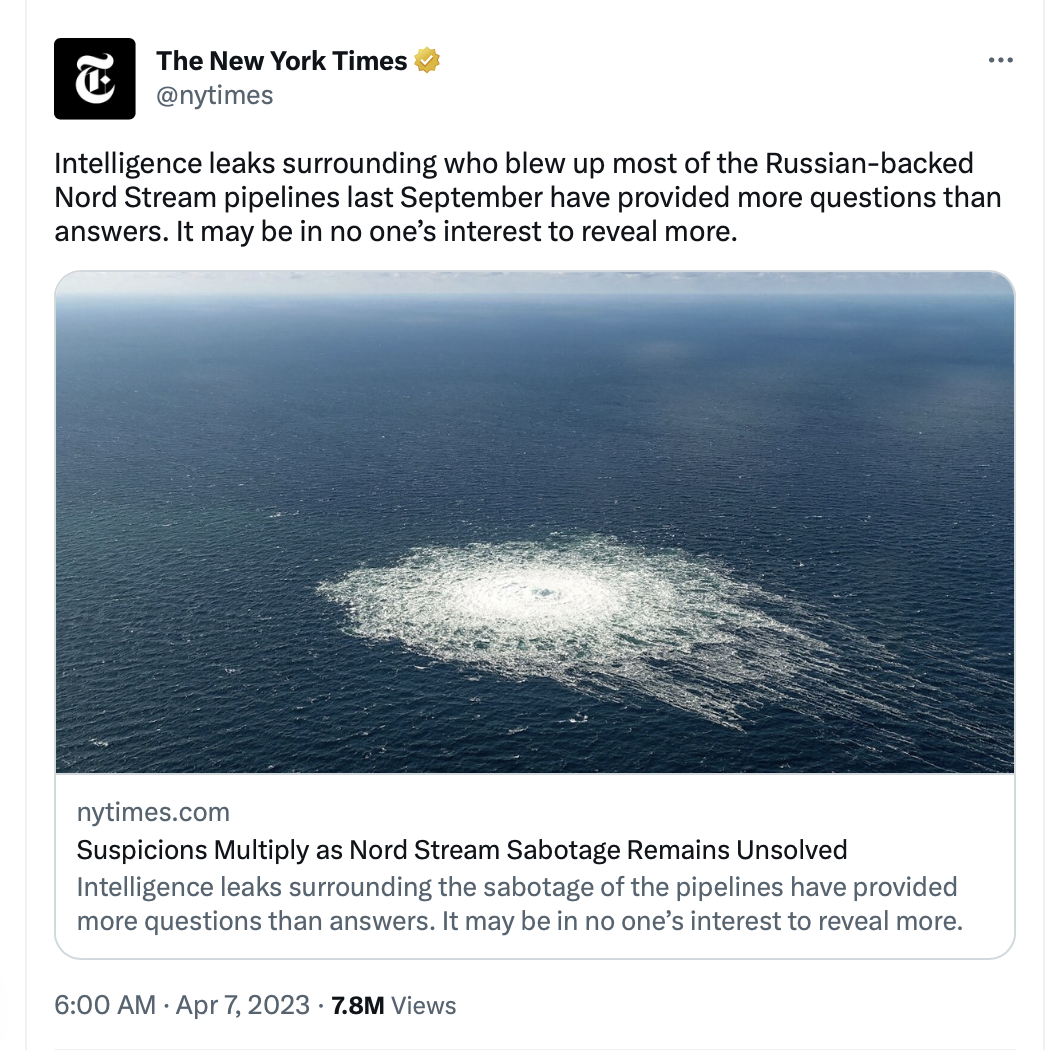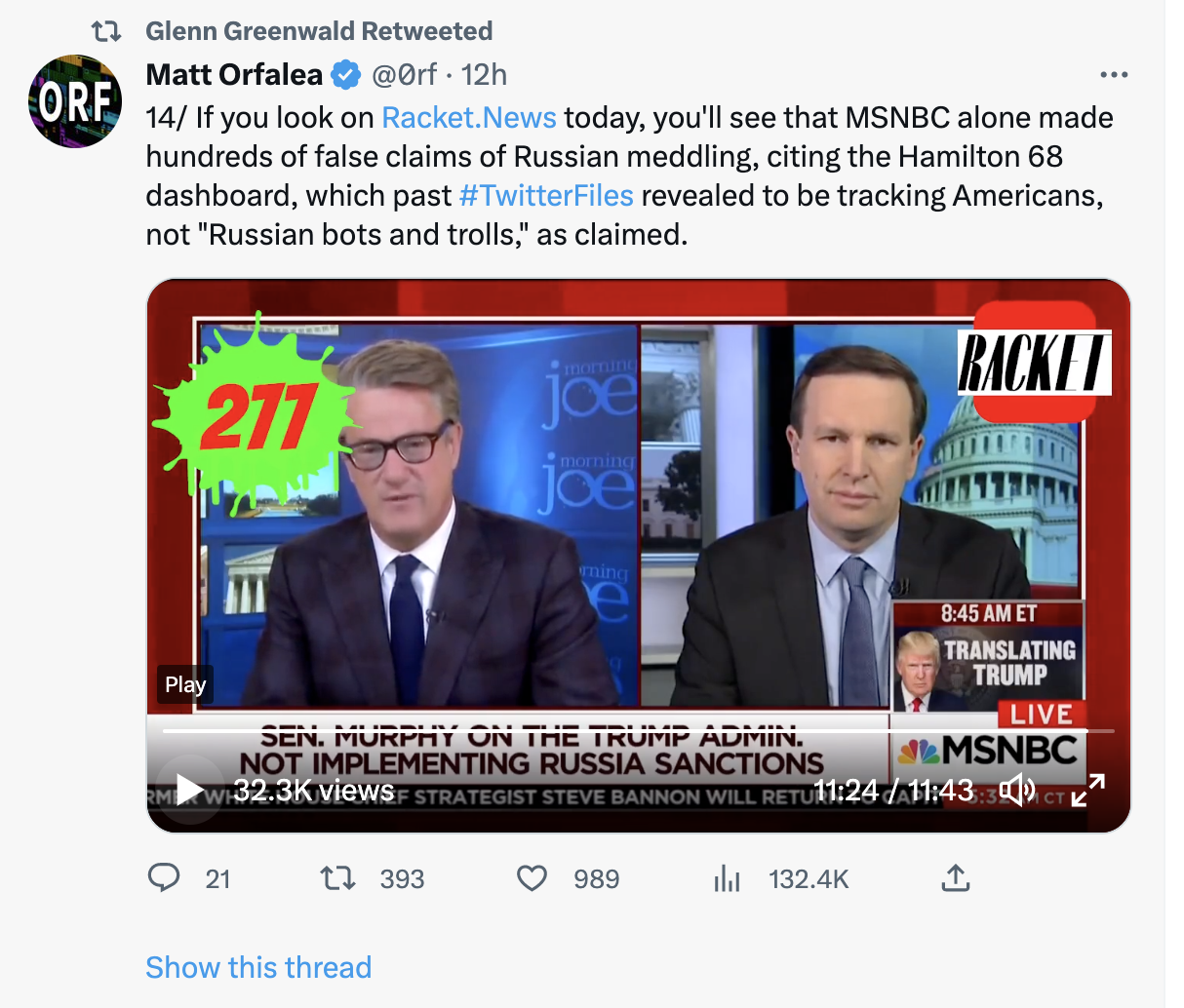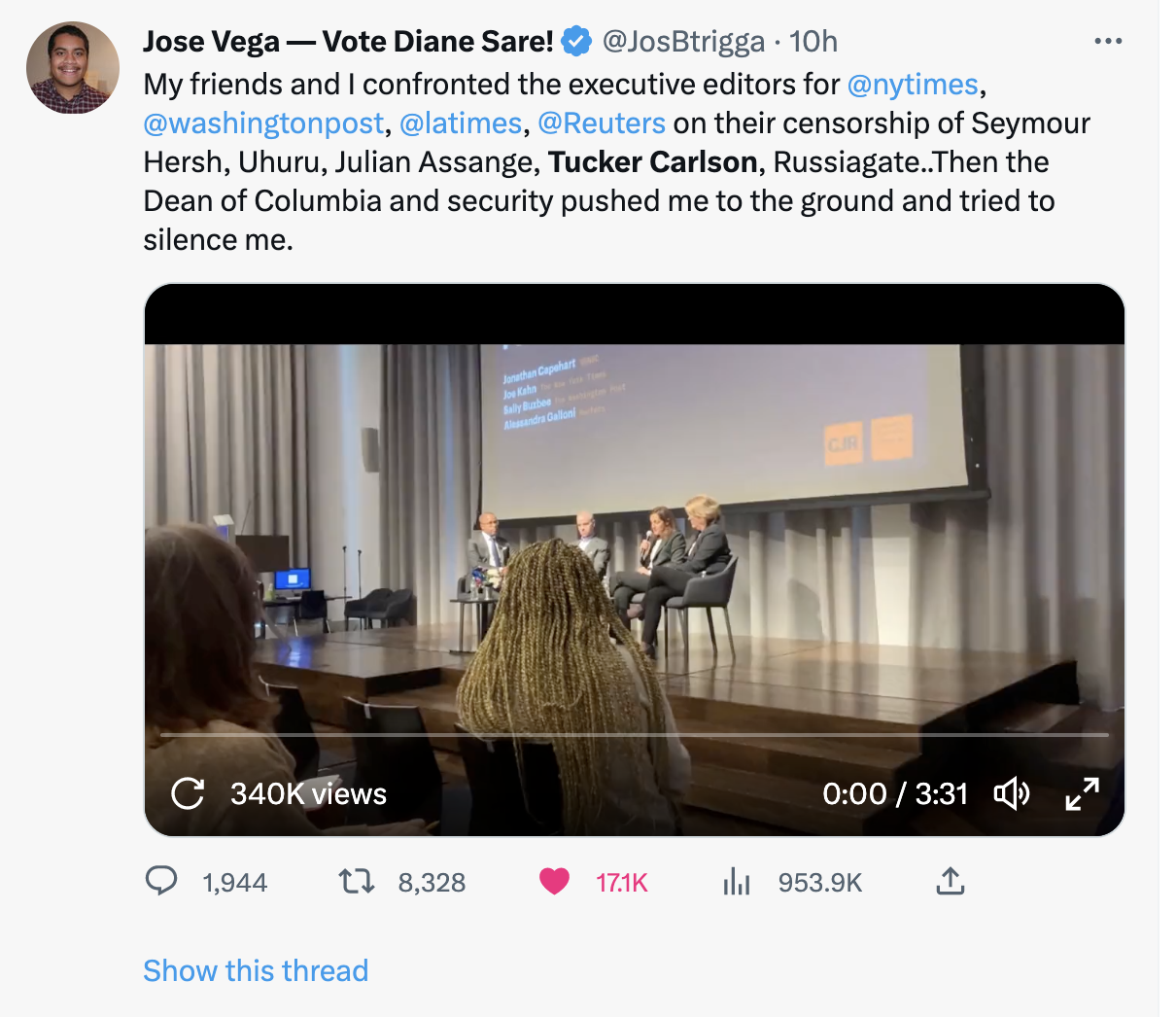What you need to know about Julian Assange on the Fourth Anniversary of his Imprisonment. On Glenn Greenwald's System Update, the Free Speech Alternative to YouTube.

An excerpt of the transcript of this show from Glenn's site at Locals:
There's, I think, a very good strong case to make that Julian Assange is definitely one of the most consequential and intrepid journalists of the last, say, 50 years, if not the single most important pioneering journalist of his generation. He has almost certainly broken more major stories than almost every single employee of the mainstream media outlet combined. They don't hate Julian Assange, despite the fact that he's broken so many stories. They hate him precisely because of that – in part because he shined. He holds up a mirror showing what they really are. He is what they pretend to be.
While the mainstream media constantly publishes stories that they dress up as leaks but in fact are nothing more than propaganda messaging tasks given to them by the CIA and the FBI and Homeland Security, which pick up the phone and pick their favorite reporter and tell them what to go plant in the newspaper to disseminate propaganda to the American people, Assange never does that and never had to and never would. He shows the American people and the world the secrets the CIA and the FBI and the Pentagon and Homeland Security don't want you to see. And that's why those agencies hate him. And that's why the employees and the media outlets that serve those agencies also hate him. That is the reason that he's in prison.
Almost every single employee of The New York Times, The Washington Post, CNN and NBC, on a daily basis – you can pick up those newspapers or if you have the misfortune to listen to those networks, you will hear or read them saying – “anonymous officials told us” X, Y, and Z, they publish classified information all the time. But they don't end up like Julian Assange or Jack Teixeira – the 21-year-old member of the Massachusetts National Guard was hunted this week by The New York Times and The Washington Post and then arrested yesterday by the FBI because he is accused of having leaked classified documents.
The difference between the mainstream media on the one hand and Assange and Jack Teixeira and people like Edward Snowden on the other is that the mainstream media publishes leaks that are authorized, that the U.S. Security State wants you to see because they're forms of propaganda and that's why they're never punished. That's why they don't end up in prison. They get book deals; they get put on television and they're applauded by the U.S. government. The people who end up in prison are those who show you the secrets they want to hide. That's the main difference. It's the difference between being a propagandist and being a journalist. Julian Assange is a journalist, and that's the reason he's in prison.





